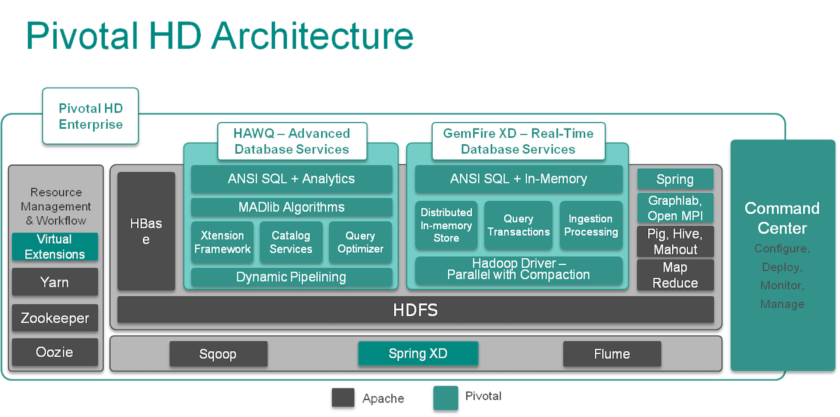HITS

Pivotal: Changing the Mindset on Building Software
Story Highlights
Think of having a new business idea in the morning, building the software to handle that product during lunch, and launching the new business before everyone clocks out for the day.
San Francisco-based Pivotal doesn’t think that reality is too far off. The software and services company currently works with a third of Fortune 100 companies, including Verizon and Comcast, to build software from the ground up.
Michael Vos, Pivotal’s global account executive for telecommunications, media and entertainment, spoke with the Media & Entertainment Services Alliance (MESA) about the state of custom software solutions in the industry, how time-to-market is more crucial than ever today, and what it means to have a “Silicon Valley state of mind.”
MESA: What was the impetus for Pivotal when it was founded (first as Pivotal Labs), what gap in the software development market was the company looking to fill?
Vos: Pivotal was formed to help companies use technology to compete in new ways. As Paul Maritz, the original CEO of Pivotal, said in a recent interview, companies have to develop new software-infused capabilities to win. Recently, current CEO Rob Mee highlighted the need for modern methods, and modern technology, to compete with hungry upstarts. Pivotal combined the legendary success of Pivotal Labs in helping startups “get” software, with the modern platforms enterprises need to deliver software at scale.
Instead of relying on packaged software or outsourcing vendors to deliver IT capabilities, smart companies are building custom software to interact with customers and improve service quality. And many of these smart companies turn to Pivotal for help.
MESA: Having a ‘Silicon Valley state of mind’ is Pivotal’s mantra for software companies. How does that mentality apply to Pivotal’s work with companies in the telecommunications, media and entertainment sector?
 Vos: Being “cloud native” is a mindset. It doesn’t require you to be based in the Valley or operate a social media startup.
Vos: Being “cloud native” is a mindset. It doesn’t require you to be based in the Valley or operate a social media startup.
Rather, it’s about taking a customer-centric approach to service delivery, prioritizing automation, and creating small batches of software to run experiments. In the media space, who wouldn’t want to run A/B tests on promotional campaigns, monitor the impact in real-time, and then immediately make changes to maximize customer engagement. Or what about handling device activation or surges in new product orders without back-office applications melting down?
Media companies that depend on Pivotal’s Agile methodology and multi-cloud platform Pivotal Cloud Foundry are able to take ideas to market in hours, not months. And based on customer feedback, those same customers can evolve their software to take advantage of new insight. This is how you turn customers into fans of not just what you do, but how you do it.
MESA: What makes Pivotal’s cloud-native platform unique in the M&E space, especially when it comes to targeted marketing and multimedia streaming?
Vos: M&E customers turn to Pivotal because we’re proven to speed up the delivery of quality software. Companies like Comcast, Dish, and Verizon rely on Pivotal Cloud Foundry for customer-facing services, internal systems, and more. Competition is fierce in the M&E space as digital upstarts threaten established providers. Pivotal helps these existing companies regain their competitive edge by turning raw data into action faster, and then taking that insight and rolling it into software changes. It’s exciting!
MESA: Advanced analytics are a must for content companies looking for a leg up with their consumers today. What advances has Pivotal made in using data to predict behaviors and inventory systems?
Vos: Pivotal brings together Agile data science expertise, accessible machine learning capabilities and modern data analytics technologies to enable our clients to turn massive amounts of customer and other data into predictive insights. Just as importantly, Pivotal also helps clients operationalize those insights in software with the help of Pivotal Labs and Pivotal Cloud Foundry. It’s this combination of analytics and software that delivers real value to our clients.
MESA: What are some of Pivotal’s favorite use case examples, where M&E companies have made especially good use of Pivotal’s services? Comcast/NBC, 21st Century Fox, and Verizon … there are plenty to choose from, but do any first come to mind?
Vos: I think the Sundance Institute is a great example. Pivotal helped Sundance modernize its web site to make it more compelling for users and easier for users to make donations to support independent films. With the help of Pivotal Labs, Sundance used Agile methodologies to develop the site, iteratively adding new features and capabilities based on how real users traversed the site.
Sundance built the new website on Pivotal Cloud Foundry, which enables it to scale dynamically when traffic spikes and easily push new features into production. If you visit the Sundance site today, it’s really a dynamic, engaging experience and is constantly evolving.
MESA: What’s next for Pivotal, what can we look forward to from the company in the future?
Vos: We continue to ship new versions of software — both open source and commercial —constantly! You can expect us to continue focusing on helping companies increase developer productivity, reduce operational costs, and improve their security posture.
Vos can be reached via email at [email protected].









